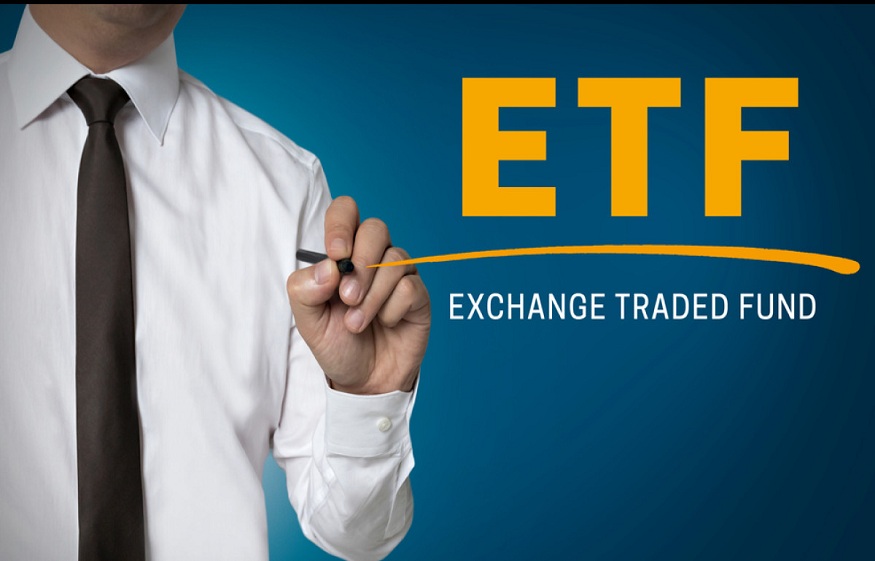The pros and cons of investing in ETFs

Today, investing has become more accessible providing all types of investors with numerous options. While stocks and bonds are still important elements of any portfolio, exchange-traded funds (ETFs) have fundamentally changed the investment world, providing investors with more options and flexibility for building a portfolio.
An ETF is a mutual fund that tracks an index (Nifty/Sensex), a commodity (golds), bonds, or a basket of assets like an index fund. ETFs attempt to replicate the performance of a particular benchmark rather than seeking to outperform it. These funds can add value to your portfolio and build long-term wealth, but they are not without risks.
Read on for an overview of the pros and cons of exchange-traded funds to understand how they fit into your overall investment strategy.
Benefits of investing in ETFs
-
Diversification at low cost
ETFs offer diversification as through a single fund, investors can gain access to various stocks from different sectors and market segments. A Nifty 50 ETF, for example, provides exposure to 50 blue chip stocks across sectors such as financial services, information technology, pharmaceuticals, media and entertainment, and infrastructure. This diversification helps manage volatility and mitigate risk, which is essential to maintain stability in a portfolio.
-
Liquidity and trading flexibility
ETF funds are listed on stock exchanges, which means that they can be bought and sold throughout the trading day, just like individual stocks. This is different from mutual funds, which are priced and traded only once a day at the end of the trading session. ETFs provide investors with the flexibility to enter or exit their position at any time, ranging from a short-term intraday trade to a long-term investment.
-
Cost effectiveness
Most ETFs have lower management fees and expense ratios as they are passively managed. Passive management reduces the need for fund managers to buy and sell assets frequently, reducing the portfolio’s turnover and subsequent trading costs. Investment in mutual funds incurs slightly higher due to additional fees for services such as marketing, board of director payments, shareholder accounting expenses, and load fees, making them less cost-efficient than ETFs.
-
Transparency
ETFs disclose their holdings daily, giving investors up-to-date information on the individual components of their investments. This level of transparency makes it easier for investors to monitor their portfolio’s performance, risk profile, and asset allocation.
Risks associated with investing in ETF funds
-
Tracking error
Tracking error measures how closely a fund follows its underlying index and can indicate if the fund is replicating the performance of that index accurately. ETFs aim to track the performance of their underlying indices, but sometimes, they may not be able to replicate the exact performance. This error can be attributed to differing methodologies, techniques, or fees charged by the fund and may adversely affect investments.
-
Short-term trading costs could be excessive
ETFs offer investors the chance to capitalise on intra-day market movement, but this comes with its own risks. Intra-day pricing can fluctuate throughout the day, causing increased transaction costs. This could be an issue for long-term investors looking to invest for 10 to 15 years. A small fluctuation in price during the day might not be representative of larger trends but may trigger impulsive purchases or sales.
-
Lack of control over investments
Since ETFs track an index, investors don’t get to choose specific stocks or bonds that they want to invest in. Instead, they simply buy shares in the fund which gives them exposure to all of the underlying assets without having any direct control over how those assets are managed or allocated. This can limit your upside potential since you cannot pick individual stocks that could potentially outperform the market as a whole.
To wrap up
ETFs offer a combination of diversification, flexibility, low costs, and transparency that many investors find attractive. However, they also have drawbacks, such as daily trading costs, tracking errors, and limited control over their operations. It is essential to carefully weigh these pros and cons when deciding whether to add ETFs to your mutual funds investment strategy. As with all investment decisions, thorough research and consultation with a financial advisor are crucial to making the right choice based on your age, income, financial goals, and liabilities.





